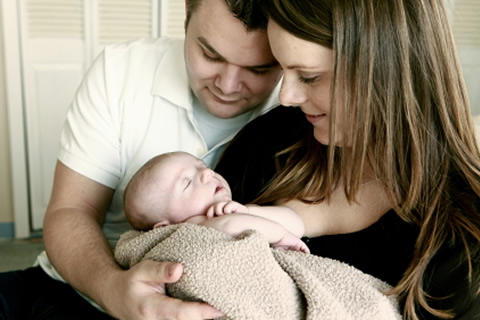Breast or Bottle?

Whether you chose to feed your baby from your breast or a bottle is a personal choice. It is a choice made specific to you and your baby.
The choice should not be accompanied by any pressure from others.
It is important that you are in control of the decision and feel you are making an informed decision that is right and best for you and your baby.
The WHO (World Health Organisation) recommends to breast feed exclusively for the first 6 months, but sometimes it just isn’t possible, either you can’t or wish not to.
You should not be made feel guilty if you don’t breast feed your baby.
At the end of the day it comes down to your own choice and situation.
Remember whatever way you go with the feeding, if it is what you want and are happy in the decision, then don’t be put off or swayed by other however well intended people.
If your child seems content and is growing and there are no health concerns then you can be happy in that you made a decision that works for you.
Although breast milk is considered the best possible nutrition for a new baby there are what can be described as advantages and disadvantages for both the breast and the bottle.
Pros for breastfeeding
- Colostrum is the thick yellow first breast milk that your baby will receive and is very rich in nutrients and antibodies to protect your baby.
- By day 3-5 the baby is now getting milk which is rich in fat, water, sugar and protein to help your baby continue to grow and develop.
- The milk provides your baby with all the antibodies they need. These antibodies are said to help reduce the incidence of illnesses such as asthma, obesity, lower respiratory infections. Research shows that babies who are breast fed are much less likely (80%) to have intestinal infections.
- It has benefits for the mum in can help to shrink the uterus. It is also linked to a lower risk of breast and ovarian cancer and post natal depression.
- It is more cost effective.
- It is believed that it is easier to digest, especially for premature babies and that babies may suffer less from constipation, colic, etc.
- It avoids the need for sterilization of bottles and the preparation of formula.
- It prevents overfeeding.
- The temperature is always perfect for the baby despite the temperature of the day.
Cons for breast feeding
- There are a range of complications such as sore nipples, low milk supply or an oversupply of milk, engorgement, mastitis, etc.
- Some mum experience a failure of their baby to latch onto the breast and find breastfeeding difficult.
- It may be more tricky with a baby with health problems.
- Some can feel like they are on call 24 hrs/day.
- The breastfeeding in public debate. Some may feel uncomfortable and intimidated by others feelings on this so feel awkward and uneasy about breastfeeding in public.
- You may need to monitor you food (& alcohol) intake as it all flows to your baby. A baby may have excessive wind from some foods for example.
Pros of bottle feeding
- Often getting a baby started and settled on a bottle is easier.
- It can be a great bonding experience for mum and dad as dad is now able to feed the baby as well.
- Less feeding. A bottle fed baby generally stays fuller for longer than a breast fed baby.
- You can physically see how much your baby has had. It is a good way to monitor the amount of milk your baby is having.
Cons for bottle feeding
- Despite all the research into formula and the best of intentions formula does not have quite the same health benefits as breast.
- Sterilizing bottles can be time consuming.
- Formula can be costly.
- You need to be careful and follow the directions for the preparation of the bottle.






